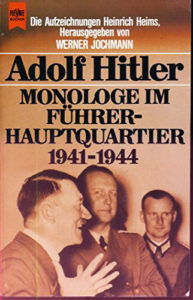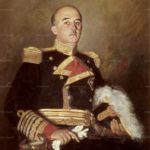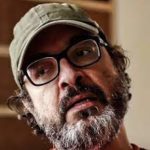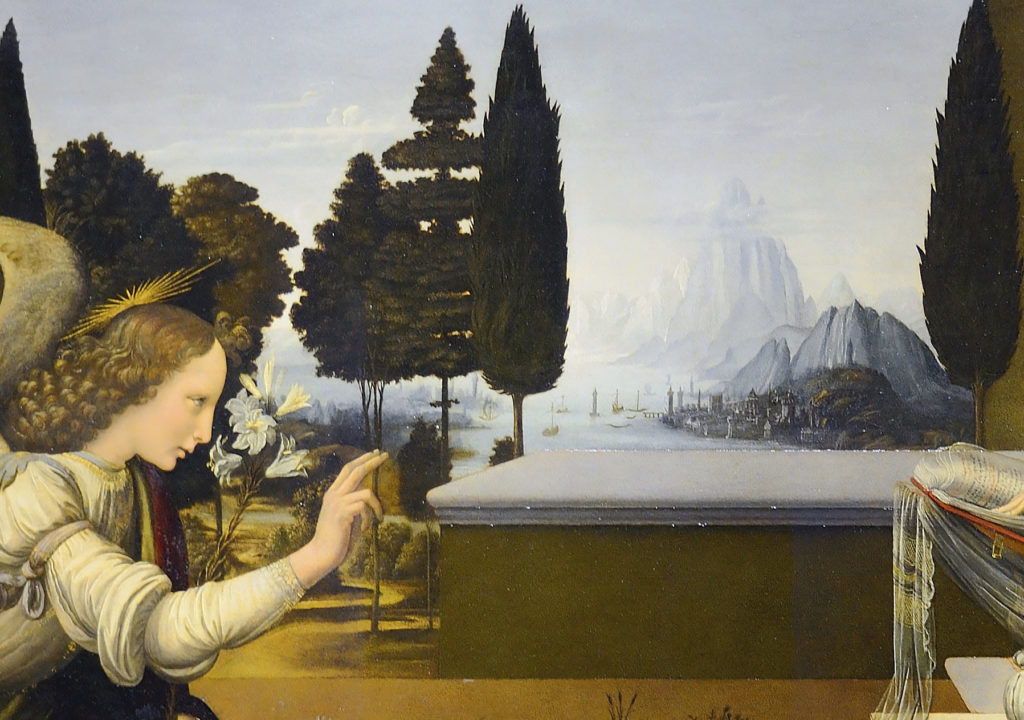For the context of these translations click here
The Ascension of the Carolingians
‘…with the help of Christ, King of kings and Lord of lords.’ – Chronicle of Fredegar
‘Soon the Franks attacked with ships and darts, riddled them in the waters and killed them. Thus the Franks finally triumphed over their enemies and conquered much spoil of war, having taken many prisoners. And with their victorious leader the Franks ravaged the land of the Goths. The most famous cities of Nimes, Agde and Béziers he razed to the ground, with the walls of the houses and the city, and set fire to them. He also destroyed the suburbs and fortifications of that territory. When he, who in all his decisions was guided by Christ, in whom alone is the good of victory, had defeated the army of his enemies, he returned safe and sound to his territory’. – Chronicle of Fredegar
‘The profession of the Carolingians was war. They learned nothing else, for nothing else were they educated, and by nothing else could they accredit themselves.’ – Wolfgang Braunfels
The political events of those years lie in a dense fog. The second half of the 7th century ranks among the ‘darkest epochs’ of medieval history because at the end of the Chronicle of Fredegar in 643 the contemporary sources are almost completely silent…
St Gertrude, who at the age of twelve had already taken a vow of perpetual chastity, was ‘consumed by her asceticism’. Already at the age of thirty she retired, handing over the exhausting office of abbess to Wulfetrud, her niece, so that everything would remain in the family. She survived only three more years ‘in prayer and penance’ (Van Uytfanghe). And during the celebration of the holy mass she followed the holy martyr Foillan into paradise. Her cult, however, spread rapidly from Brabant to Germany and Poland. Moreover, it became one of the best-known communities of saints in the Middle Ages.
Consequently, Gertrude became first the patron saint of wanderers and then the patron saint of the good death (‘May St. Gertrude prepare a place for you!’). From the 15th century onwards, her protection against rats and mice was invoked. In iconography, she appears in the habit of an abbess or princely dress, including a princess’s crown or hat, but with mice around her, which climb up her abbess’s staff or perch on her bosom. A symbol of impurity and evil, the mice, in fact, ‘disturbed her in her pious meditation’. A whole tangle of entanglements and clerical propaganda!
______ 卐 ______
Editor’s note: ‘God’, in the pantheistic sense we recently read in Weikart’s book on Hitler, rewards those who comply with the laws of Nature. The Jews have been complying with those laws and that’s why they are in power. The white assholes, on the other hand, with their Christianity and neochristianity that has reached the Woke movement of today, violate those laws for which they are being punished—and will continue to be punished until (1) their extinction or (2) they transvalue their values and comply with Nature’s laws (exterminate your enemy, etc.).
 This case of the Belgian Gertrude of Nivelles (628-659 c.e.), represented here on glass window, was a bad omen for the future of the white race. A cute nymphet taking perpetual vows of chastity? Compare it with David Lane’s 14 words! One could imagine the Jewish or Moorish nymphs and nymphets of the nascent Islam of that time taking perpetual vows of virginity! But the most pathetic thing is that, even today, the so-called defenders of the Aryan haven’t been able to repudiate this whole Catholic thing that caused so much damage with its vows of celibacy. Deschner continues:
This case of the Belgian Gertrude of Nivelles (628-659 c.e.), represented here on glass window, was a bad omen for the future of the white race. A cute nymphet taking perpetual vows of chastity? Compare it with David Lane’s 14 words! One could imagine the Jewish or Moorish nymphs and nymphets of the nascent Islam of that time taking perpetual vows of virginity! But the most pathetic thing is that, even today, the so-called defenders of the Aryan haven’t been able to repudiate this whole Catholic thing that caused so much damage with its vows of celibacy. Deschner continues:
______ 卐 ______
Armed mission among the Frisians
Alongside the Saxons (and the Bretons), it was the Frisians who put up the fiercest resistance to the Franks. It took Christian soldiers and missionaries a whole century to subdue them.
The Frisians were a people of peasants, fishermen and merchants, who didn’t abandon their tribal settlement by the North Sea in the coastal territories between the Ems and Weser, even during the migrations of the Nordic peoples. Perhaps as early as the middle of the 6th century, the Frisians were (partly) subdued under the rule of Chlothar I. What is certain is that in 630 King Dagobert gave the Bishop of Cologne the castle of Utrecht with the task of converting them. During the bloody feuds under Dagobert’s successors, Frisia’s potential and economy flourished, and some foreign preachers resumed conversion attempts, to no avail. Bishop Wilfrid of York, vigilant of Roman observance, wasn’t happy…
Pepin himself made his fortress of Traiectum (Utrecht) the seat of Willibrord ‘because the spread of Christianity among the Germans strengthened his political influence on the border of the kingdom’ (Buchner). ‘Frankish rule and Christian mission were mutually supportive’ (Levison). ‘Political and ecclesiastical interests went hand in hand in the new mission territory’ (Zwolfer). All this has long been proven and undisputed. First the sword of the nobility, then the loquacity of the clergy, and finally the general bloodletting.
On Pepin’s death the pagan Frisian duke Redbad, who called himself king, repulsed the Franks. He reconquered the territories west of the Alter Rhein, and without Frankish rule the Christian Church collapsed. Only after Redbad died in 719 did the Franks break into West Frisia. Charles Martell, who supported Willibrord’s ministry with magnificent donations and tax concessions, marched three times against the Frisians and in two wars against Duke Bobo (733 and 734). He seized the whole of central Frisia while eastern Frisia, at one with the Saxons, could only be subdued by Charles ‘the Great’.
The ironies of history
I’ve been watching some videos by Gonzalo Lira, a Chilean-American formerly known by the pseudonym Coach Red Pill, who currently resides in Ukraine.
In one of his videos, Lira advised viewers living in Western democracies something I believe myself: to move to ‘a poor, underdeveloped country’ because of the ‘totalitarian’—his word—mandates of first-world Covid vaccines. Lira posted more than 500 videos and garnered 324,000 subscribers and millions of views. He also maintains a Telegram group where he posts information about Covid and has supported former Chilean dictator Augusto Pinochet and his opposition to communism. In November 2021, Lira removed most of his content from the Coach Red Pill YouTube channel and began posting under his legal name. He now lives in Kharkiv and has family in Ukraine.
As we see in his video today, Lira again advises dissidents to move to a third-world country. In the video he mentions a couple of very recent cases: a young German woman and an Englishman who vlog freely from Ukraine are being persecuted by their governments for reporting what they see.
Two of the commenters who have commented here in the past, on The West’s Darkest Hour, now face court charges in the UK for thought crime (Jez Turner, who I also met in London, was jailed for over a year exactly for the same reason). I told one of them to move here to Mexico, from where I can blog without fearing that the thought police will knock on my door at midnight, and from here resume his radio show (the English have nothing like, say, American James Edwards’ The Political Cesspool).
When I was younger, Eastern bloc dissidents used to escape to the West in order to speak out. But there is no ironist like History. Now it is westerners who have to escape to Russian-controlled territories to speak freely! What recently happened to Steve Bannon in the so-called ‘First Amendment’ country is a first warning of what may happen to American racialists in the not-so-distant future.
The time will come, after the collapse of the dollar stops all illegal migration to the US because the party is over, when it will be white Americans who cross the border illegally in search of freedom. Since the border states are dangerous because of the drug cartels, I welcome them a little further to the south, where there is relative peace.
In the 17th photograph of our ‘European beauty’ series, which I uploaded to this site today, we see a mountain backdrop in northern Italy (see my exchange yesterday about the locations that the photos represent). That Italian mountain may well have inspired Leonardo da Vinci for some of his drawings of the Holy Family, or the Annunciation with mountains in the background. It was a time when artists were almost compelled to paint pictures with religious motifs, although the angel of the Annunciation, beyond the Nordic and the hyperborean, is the absolute opposite of any Semitic profile. These are the antecedents of the nymphs that Parrish painted last century against the background of majestic mountains.
In the 18th and 19th centuries, when artists became independent of the patronage of the Church, they were finally able to admire the mountains and Aryan beauty from a more secular viewpoint. On a mountain excursion in 1739 the poet Thomas Gray, visiting the Grande Chartreuse, wrote: ‘Not a precipice, not a torrent, not a cliff, but is pregnant with religion and beauty’.
More famous for admiring nature were Goethe and poets like Coleridge and Wordsworth, and in painting Turner came to capture more abstractly the vital spirit of nature. While Constable painted the plains the poet Wordsworth was more associated with the mountains. I confess that Wordsworth’s leisurely, long solo walks in the English countryside prompted me to ask about prices for houses in Perth when I visited Scotland because that town was perfect for my long solo walks. Of course, it was only a fantasy as I have no money in the bank. Still, I cherished the idea of moving to a place where I could feel European Nature without interference from Gomorrah.
The inhabitants of Gomorrah may believe that by going to the gym they’ll be healthy, ignoring that a healthy body can only inhabit a healthy mind. It can only be obtained through the spirit of romantic poets and painters who understood, through their art, what Hitler would later understand through pantheism. The Aryan dissident who feels like Lot in Gomorrah and cannot afford a cosy cottage in the countryside should undertake the study of art in the solitude of his room, though unlike what Catholic Kenneth Clark told us, from the panentheist point of view.
This is one of the tremendous deficits of American white nationalism. Without the feeling of the numinous, it is impossible to awaken what Jung called the Self, as the full understanding of beauty is the royal road to a true racial awakening.
European beauty
The Führer’s monologues, 2
For the context of these translations click here,
for this monologue in German, here.
Führer Headquarters 5/6 July 1941, 11.30 a.m. – 1.50 a.m.
 Conversation with [Nicolaus] v. Below[1] about whether we wouldn’t do well to publish pictures of the large-calibre gun, which had not yet been shown, now for once, for the moral shaking of the enemy. Long general discussion about car engines: the Führer’s first and later cars. [Hitler also said:]
Conversation with [Nicolaus] v. Below[1] about whether we wouldn’t do well to publish pictures of the large-calibre gun, which had not yet been shown, now for once, for the moral shaking of the enemy. Long general discussion about car engines: the Führer’s first and later cars. [Hitler also said:]
The beauty of Crimea is made accessible to us by a motorway: the German south. Crete is hot and forestless. Cyprus would be nice, but we reach Crimea by road—Kiev. And our destination: Croatia. ‘I think there will be great joy after the war’.
Better than the railway, which is somewhat impersonal, the motor car will connect the peoples. What a factor on the way to the new Europe! Just as the autobahn [federal controlled-access highway system in Germany] made the inner-German borders disappear, the borders of the European countries will be abolished.
When asked whether it would be enough to have advanced as far as the Urals as a frontier, [I reply that] it will be enough to have advanced the frontier as far as there. Bolshevism must be eradicated; if necessary, to this end we would advance from there to wherever a new centre of resistance is forming. Moscow as the seat of this doctrine will disappear from the face of the earth as soon as the valuable goods are taken away. It won’t be possible for us to work with the Russians in the factories there. St. Petersburg [Leningrad] as a city is incomparably more beautiful than Moscow. This time, the art treasures of The Hermitage [Museum] would probably not have been transferred to the Kremlin—as in the [First] World War—but to houses in the countryside, unless they’ve been taken to the cities east of Moscow or by sea.
________
[1] Nicolaus von Below was Hitler’s Luftwaffe adjutant, last in the rank of Major General.
“Chemical imbalance” myth
Franco, 2
 The Spanish Republic was supported by a revolutionary ideology heading towards communism, and during that revolutionary phase the Catholic Church suffered great persecution by the Republic. This prompted the Vatican to make the first timid attempts to break the isolation to which Franco’s Spain had been subjected in the post-war period at the same time as the beginning of the Cold War, when the Soviet Union began to be perceived as the new enemy of the United States. But that was until 1953 because the Falange was anti-clerical, and the Vatican wanted nothing to do with anything that smacked of fascism. Only with Spain’s rapprochement with the United States could we say that Franco had won the war, as his country was thus able to emerge from the isolationist purgatory to which Spain had been subjected in the immediate post-war years.
The Spanish Republic was supported by a revolutionary ideology heading towards communism, and during that revolutionary phase the Catholic Church suffered great persecution by the Republic. This prompted the Vatican to make the first timid attempts to break the isolation to which Franco’s Spain had been subjected in the post-war period at the same time as the beginning of the Cold War, when the Soviet Union began to be perceived as the new enemy of the United States. But that was until 1953 because the Falange was anti-clerical, and the Vatican wanted nothing to do with anything that smacked of fascism. Only with Spain’s rapprochement with the United States could we say that Franco had won the war, as his country was thus able to emerge from the isolationist purgatory to which Spain had been subjected in the immediate post-war years.
The consolidation of Francoist Spain in the 1950s must be seen in this light: Franco was never an original ideologue. He never wrote a Mein Kampf. He was first and foremost a soldier, and wanted to organise Spain as if it were military barracks. That is why when he died there was no more Francoism. (Compare it with National Socialism. Despite all the propaganda bullshit that the White traitors and the Jews have been throwing at it, the National Socialist idea still lives on in the hearts of dissidents.)
The degeneration of Spain after the death of the caudillo wouldn’t have happened if the Falange, the single party, had been able to re-educate the young Spaniards with its fascist ideology. But in the late 1950s the Falange lost the internal struggle and the technocrats of Opus Dei gained influence. If Franco had respected the 1956 Falange initiative on who would succeed him after his death, instead of passing the mantle to Prince Juan Carlos, Spain wouldn’t have deteriorated so rapidly after 1975.
Franco’s decision to appoint Juan Carlos as his successor came as a bucket of cold water to the Falangists in 1969. But the real war had already been lost since 1945. Without the world Hitler and Mussolini dreamed of, young Spaniards were beginning to Americanise and Sovietise even while the Generalissimo was still alive. By the end of the 1960s, a university survey showed that more than 70 per cent of students were influenced by philo-Marxist or Christian democratic values, and only 10 per cent embraced the ideals of Francoism. These young people knew nothing of the trauma of the civil war. The American and Western European lifestyle had already seduced them through the great tourism that Spain enjoyed, as well as the degenerate music that tourists brought with them, such as rock music, not to mention the sexual liberation of the late 1960s.
Once crowned, Juan Carlos I of Spain handed over power to parliamentary democracy instead of exercising it as king. He is remembered for this role during the Spanish transition. A 1981 coup attempt failed and Juan Carlos supported the European Union and NATO (the aim of the failed coup was to bring back a Francoist regime in Spain by a group of civil guards). Juan Carlos must be remembered as one of those responsible for the implementation of the immigration laws that opened Spain’s borders to mass immigration. He can be considered an accomplice to the genocide of Iberian whites in Spain.
As in the rest of the western world, in the end the bad guys in our film prevailed. The moral of this story is that only the implementation of National Socialism, in all its purity, could save the Aryan: something the racial right in America is in no way trying to do, at least in an academic way at the moment (as I do in The West’s Darkest Hour).





